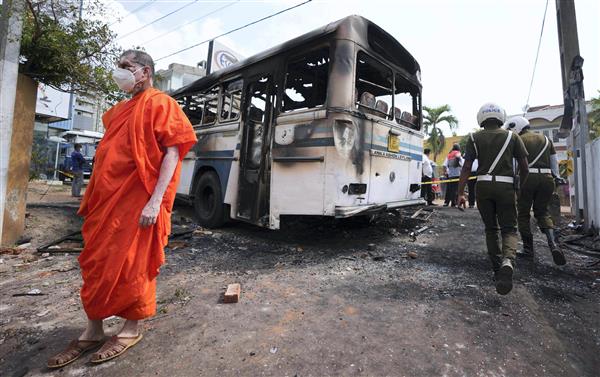Sri Lankan President Gotabaya Rajapaksa declared a nationwide public emergency late on Friday following violent protests over the country’s worst economic crisis in decades.
Rajapaksa said in a government gazette notification that he took decision in the interests of public security, the protection of public order and the maintenance of supplies and essential services.
Hundreds of protesters clashed with police and military on Thursday outside Rajapaksa’s residence in a suburb of the capital, Colombo.
Police arrested 53 people and imposed a curfew in and around Colombo on Friday to contain sporadic protests that have broken out over shortages of essential items, including fuel and other goods.
The Indian Ocean island nation of 22 million people faces rolling blackouts for up to 13 hours a day as the government scrambles to secure foreign exchange to pay for fuel imports.
The country’s lucrative tourism industry and foreign workers’ remittances have been sapped by the pandemic, and public finances were hit further by deep tax cuts promised by Rajapaksa during his 2019 election campaign.
Ordinary Sri Lankans are also dealing with shortages and soaring inflation, after the country steeply devalued its currency last month ahead of talks with the International Monetary Fund for a loan programme.
Police used tear gas and water cannons to disperse crowds near Rajapaksa’s residence on Thursday, after they torched several police and army vehicles.
At least two dozen police personnel were injured in the clashes, an official said, declining to comment on the number of protesters hurt.

